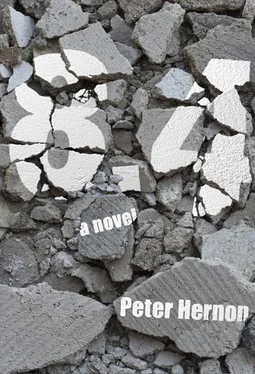He told them the kind of bomb they planned to explode and the anticipated yield. He didn’t give specifics on where it would be detonated. That would remain top secret for as long as possible.
“The truth is we already have experience with a nuclear explosion in the Mississippi Valley.” He mentioned a five-kiloton blast near the tiny Mississippi town of Salmon, about thirty-five miles from Hattiesburg. The shot in 1964 was a successful effort to hollow out a salt dome as a possible storage site for oil reserves. No radioactivity had vented from the explosion, which was done at a shallow depth of less than 400 feet.
“They barely felt it over in Hattiesburg,” the president said. “This explosion will be considerably larger. The geologists say it will have the short-range effect of a magnitude 6.5 earthquake. I have to tell you that this will probably cause some additional damage.”
Ross paused and in his firmest voice went on: “I believe the damage will be nothing compared with the consequences of another magnitude 8 earthquake. There will be risks, but I’m convinced we have to take them. I don’t think the Mississippi Valley could survive another major earthquake.”
Turning aside from his notes, Ross spoke to those who’d taken up arms against the government, quoting from President Lincoln’s second inaugural address. Carefully avoiding any mention of the governor of Kentucky, he repeated Lincoln’s words about people who stood on two sides of a national debate, those who “would make war rather than let the nation survive; and the other would accept war rather than let it perish.” He asked members of the Kentucky National Guard and any others “who have joined their ranks” to lay down their arms. He promised there would be no penalty if they did so within forty-eight hours.
Finishing, Ross said, “I want you all to know that I’ll be there when the bomb is detonated. We’ve got to try to turn off this monster in the ground. Kill it by whatever means possible. Then we can start the long and painful task—and it will be painful—of rebuilding our cities and our lives.
“I’m sure we’ll come through this and look back upon these awful times as one of our greatest moments. May our Heavenly Father guide and help us all. Good night.”
Ross sat at his desk, staring into the cameras as the television lights blinked off. He felt overwhelmed by what he’d just told the American people and was grateful his voice hadn’t cracked. He’d almost lost it as he read the casualty list.
Steve Draper approached. He had news.
The convoy from Texas had made better time than expected. It was nearing the Mississippi River.
WILSON CITY, MISSOURI
JANUARY 20
12:05 A.M.
THE TRANSPORT GROUP FROM THE PANTEX PLANT turned off Interstate 44 near St. James, Missouri, and took two-lane blacktop that rose, plunged, and twisted through rolling Ozark foothills. Several hours later, it picked up Interstate 55 near Sikeston, deep in the southern comer of the state. Demolition teams were blasting away the rubble from dozens of collapsed overpasses to open the highway, which had become a major lifeline for the stricken Mississippi Valley. With most airports knocked out, a hundred-mile stretch of I-55 running from the Missouri-Arkansas border to just north of Memphis had been transformed into a series of runways for cargo planes loaded with relief supplies.
Forty minutes after reaching Sikeston, the convoy arrived at their destination, Wilson City, Missouri. It was just after midnight.
The town had been converted into a staging area for Army engineers who’d thrown the pontoon bridge across the swollen Mississippi. The streets were filled with Humvees, troop trucks, earth movers, and other pieces of heavy equipment. The earthquake-ravaged town had been evacuated. Most of the frame and shingle homes were severely damaged, the residents moved to a tent city near Sikeston, one of hundreds that were being set up throughout the Mississippi Valley to house the homeless.
They were about forty miles due west from Paducah and fifty miles north of Caruthersville, where nearly six days earlier, Atkins had crossed the river with Elizabeth Holleran aboard the ferry.
It was pitch-dark. Atkins could smell the river’s pungent scent and felt a tingling up his back when he remembered the last time he’d had to cross it. He asked an Army major about the waterfall.
“It’s still there, but subsiding,” said the officer, who was with the Corps of Engineers. “The drop-off is down to about ten feet. The river’s still running backward in stretches. It was a bitch throwing a pontoon across it.”
“We lost two men,” another officer said curtly, a colonel. Like everyone else, he wore fatigues, flak jacket, and helmet.
The plan was quickly worked out. The bomb was unloaded from the tractor trailer into the back of a Humvee for the trip across the bridge. Two squads of paratroopers from Fort Campbell were already patrolling its three-mile length. A flotilla of small boats, fighting the current with powerful motors, was in position above and below the span. So were helicopter gunships. The darkness was filled with the staccato beat of rotor blades.
“I’ve got to tell you, this is going to be dicey,” said the colonel, the officer in charge. “We’ve had a couple nasty fire fights on the opposite shore. I wish we could hold this up until it was secure over there, but they want to get you across right away.”
The Humvee with the bomb was the third of six identical vehicles that would cross the river at spaced intervals. After Booker made sure the weapon was securely strapped down in back, they drove out to-the bridge, where they were given life jackets. The crossing was to be made in complete darkness. Only the taillights of the vehicles were lit.
“We’re going to drive over that?” Booker said in shock, staring at the narrow, single-lane roadway that floated on what looked like an interlocking chain of barges. The metal couplings creaked loudly as the sections rocked and banged together in the rough water. Atkins heard the waves slapping hard against the shore.
“We’ve got fifty paratroopers out there,” said their driver, a sergeant. “We’ll get you boys across.”
Accelerating slowly up the metal ramp, they drove out on the pitching span. There was less than a yard of freeboard on each side of the vehicle and no side railings to prevent a tire from slipping off.
“I guarantee this is one ride you’re gonna remember,” the driver said, grinning. He clenched an unlit cigar in his teeth. A soldier wearing a radio headset sat next to him. Booker and Atkins were in the backseat. The bomb was in the Humvee’s cargo bay.
They were about a quarter of the way across when the first explosion sent up a spray of water to the right of them. Atkins saw a flash of light and felt the bridge rock up and down. Another rocket hit the river thirty yards upstream. The first rocket had been fired from the Kentucky side. The second from the Missouri shore.
“They’ve got us bracketed,” said the sergeant.
Automatic weapons hammered away somewhere upstream. Two helicopters appeared suddenly, zoomed over the bridge at low altitude, and streaked upriver, their powerful spotlights angling down, probing the shoreline.
They were out about a mile. Not even to the middle of the river. Atkins saw two boats roaring upstream, leaving wakes that glistened in the misty gloom. There was another flash of light, much closer, followed by an explosion.
The driver slammed on the brakes.
“Motherfucker. They hit one of the Humvees,” he shouted.
Atkins saw the yellow flames ahead of them. He leaned out of the window and watched as soldiers hurriedly pushed the burning vehicle into the river. Then the sound of rapid, heavy gunfire erupted again. Coming from the Kentucky shore, red tracers arched across the water. The soldiers on the bridge were returning fire.
Читать дальше












